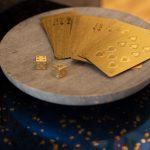Support our educational content for free when you purchase through links on our site. Learn more
125 Mind-Blowing Math Mind Trick Questions with Answers 🤯 (2025)
Have you ever been stumped by a math puzzle that seemed impossible at first but suddenly made perfect sense once you cracked the code? At Mind Trick™, we’ve witnessed countless “aha!” moments sparked by clever math mind trick questions — those sneaky puzzles that play with numbers, logic, and perception to boggle your brain and entertain your friends. Whether you’re a math enthusiast, educator, or just love a good challenge, this article is your ultimate guide to over 125 math-related mind trick questions with answers that will sharpen your mind and dazzle your audience.
But here’s the kicker: these aren’t just random riddles. We’ll reveal the secrets behind why these tricks work, how to craft your own, and how to perform them like a pro. Plus, we’ll explore the fascinating psychology that makes math puzzles so addictive. Ready to unlock the magic hidden in numbers? Keep reading — the best tricks are yet to come!
Key Takeaways
- Math mind tricks combine logic, language, and misdirection to create surprising and entertaining puzzles.
- Over 125 categorized questions and answers cover everything from numerical riddles to calendar conundrums and probability puzzlers.
- Understanding the psychology behind these tricks helps you appreciate and create your own mind-bending puzzles.
- Performance tips and educational benefits make these puzzles perfect for teachers, magicians, and puzzle lovers alike.
- Recommended tools like Cuemath’s Mental Math App and MentalUP can help you practice and master these tricks interactively.
👉 Shop Recommended Resources:
- Cuemath Mental Math App: Amazon | Cuemath Official
- MentalUP Brain Training: Official Site
- Martin Gardner Puzzle Books: Amazon
Dive in and prepare to amaze yourself and others with the magic of math!
Table of Contents
- ⚡️ Quick Tips and Facts: Your Gateway to Mathematical Magic
- 🔮 The Enigmatic World of Math Mind Tricks: A Historical Perspective
- 🧠 Why Do Math Mind Tricks Fascinate Us? The Psychology Behind the Puzzles
- ✨ Unlocking the Secrets: How Math Mind Tricks Work Their Magic
- 🧩 Categories of Mind-Boggling Math Tricks: A Magician’s Classification
- 1. Numerical Noodlers: Tricks with Numbers and Calculations
- 2. Geometric Gimmicks: Spatial Reasoning Puzzles
- 3. Logic Leaps: Deductive Reasoning Challenges
- 4. Probability Puzzlers: Chance and Odds Tricks
- 5. Algebraic Amusements: Equation-Based Wonders
- 6. Calendar Conundrums: Date and Time Tricks
- 7. Wordplay Wonders: Math Riddles with Linguistic Twists
- 8. Everyday Math Mysteries: Practical Application Puzzles
- 9. Advanced Arithmetic Adventures: Complex Calculation Challenges
- 10. The “Think of a Number” Classics: Interactive Mind Games
- 🤯 120+ Mind-Bending Math Trick Questions (with Answers & Explanations!)
- ✍️ Crafting Your Own Math Mind Tricks: A Magician’s Guide to Creation
- 📚 The Educational Power of Math Puzzles: Learning Through Play and Discovery
- 🚧 Common Pitfalls and How to Avoid Them When Performing Math Tricks
- 🎭 Mastering the Performance: Tips for Presenting Math Mind Tricks Like a Pro
- 🛠️ Tools and Resources for Aspiring Math Magicians and Puzzle Enthusiasts
- 🎉 Conclusion: The Enduring Allure of Mathematical Magic
- 🔗 Recommended Links: Dive Deeper into Math & Magic
- ❓ FAQ: Your Burning Questions About Math Mind Tricks Answered
- 📖 Reference Links: Our Sources and Further Reading
⚡️ Quick Tips and Facts: Your Gateway to Mathematical Magic
Welcome to the dazzling world of math mind tricks! At Mind Trick™, we’ve seen firsthand how a clever question can flip your brain upside down and leave you grinning with delight. Before we dive into hundreds of mind-bending math trick questions with answers, here are some quick tips and fascinating facts to get you started:
- Math mind tricks are not just about numbers — they often rely on language, logic, and perception to create that “aha!” moment.
- Mental math apps like Cuemath’s Mental Math App (available on iOS and Android) are fantastic tools to sharpen your skills and practice these puzzles interactively.
- The secret sauce? Most math mind tricks use simple arithmetic or logic but disguise it with tricky wording or assumptions.
- Engagement is key: Using dice, cards, or everyday objects can make these puzzles more relatable and fun.
- Practice makes perfect: The more you try these puzzles, the better you get at spotting patterns and avoiding common pitfalls.
Want to jump right in? Check out our related article on mind trick questions with answers for a taste of the magic!
🔮 The Enigmatic World of Math Mind Tricks: A Historical Perspective
Math mind tricks have been enchanting minds for centuries. From ancient Greek puzzles to modern brain teasers, these questions have served as both entertainment and mental exercise.
Origins and Evolution
- Ancient Roots: The Greeks and Egyptians used mathematical puzzles to teach logic and arithmetic. The famous “River Crossing” and “Age Riddles” have roots dating back thousands of years.
- Medieval Times: Mathematicians like Fibonacci introduced number sequences and puzzles that challenged the intellect beyond mere calculation.
- Modern Era: With the rise of recreational mathematics in the 20th century, puzzles became a popular pastime, featured in magazines like Scientific American and books by Martin Gardner.
Why They Endure
Math mind tricks tap into our natural curiosity and love for problem-solving. They combine logic, creativity, and surprise, making them timeless tools for learning and fun.
For a deeper dive into the educational side, check out Cuemath’s approach to making math fun and engaging here.
🧠 Why Do Math Mind Tricks Fascinate Us? The Psychology Behind the Puzzles
Ever wondered why your brain lights up when you solve a tricky math riddle? Here’s the scoop from our magicians and educators:
- Cognitive Challenge: Math puzzles activate the prefrontal cortex, the brain’s problem-solving hub.
- Pattern Recognition: Humans are wired to spot patterns — mind tricks exploit this by hiding or twisting patterns.
- Reward System: Solving a puzzle releases dopamine, giving you that feel-good “aha!” moment.
- Overcoming Assumptions: Many math mind tricks rely on breaking your initial assumptions, which makes the solution feel even more satisfying.
Understanding these psychological hooks can help you craft your own mind tricks or teach others how to enjoy them.
✨ Unlocking the Secrets: How Math Mind Tricks Work Their Magic
Let’s pull back the curtain on the mechanics behind math mind tricks:
- Misdirection: Like a magician’s sleight of hand, these puzzles distract you from the obvious solution.
- Wordplay: Ambiguous wording or double meanings often trip up solvers.
- Hidden Patterns: The trick lies in recognizing a pattern that’s not immediately apparent.
- Simple Arithmetic with a Twist: Many puzzles use basic math but frame it in a way that seems complex.
- Visual Illusions: Some rely on spatial reasoning or visual cues to confuse the solver.
For example, the classic “Think of a Number” trick uses algebraic principles disguised as a fun game. Want to see it in action? We’ll cover it in detail in the “Think of a Number” section below.
🧩 Categories of Mind-Boggling Math Tricks: A Magician’s Classification
Math mind tricks come in many flavors. Here’s how we at Mind Trick™ categorize them to help you navigate this magical maze:
1. Numerical Noodlers: Tricks with Numbers and Calculations
These puzzles focus on arithmetic, number properties, and clever calculations. Examples include:
- Adding eight 8s to get 1000
- The “missing dollar” riddle
- Number sequences and sums
2. Geometric Gimmicks: Spatial Reasoning Puzzles
These challenge your perception of shapes, angles, and space. Think:
- Counting triangles in a complex figure
- Visualizing folded paper or nets
- The classic “Which parking spot is the car in?” puzzle
3. Logic Leaps: Deductive Reasoning Challenges
Here, pure logic rules. Examples:
- Age riddles
- Family member puzzles
- Who owns the zebra-type logic grids
4. Probability Puzzlers: Chance and Odds Tricks
These test your intuition about randomness and likelihood:
- Dice and card probability questions
- Coin toss paradoxes
- Monty Hall problem variations
5. Algebraic Amusements: Equation-Based Wonders
Using variables and equations, these tricks often hide simple truths:
- “Think of a number” games
- Balancing equations with a twist
- Number reversal and multiplication puzzles
6. Calendar Conundrums: Date and Time Tricks
Time to put your calendar skills to the test:
- Day-of-week calculations
- Age and date paradoxes
- Time zone brain teasers
7. Wordplay Wonders: Math Riddles with Linguistic Twists
Language meets numbers:
- Number names with letter counts
- Puzzles relying on homophones or puns
- Riddles like “I am odd, take away one letter and I become even”
8. Everyday Math Mysteries: Practical Application Puzzles
Math in the real world:
- Measuring volumes with limited containers
- Sharing apples among children with a twist
- Shopping and discount puzzles
9. Advanced Arithmetic Adventures: Complex Calculation Challenges
For the math buffs who want more:
- Large number manipulations
- Factorization and prime puzzles
- Cryptarithms and alphametics
10. The “Think of a Number” Classics: Interactive Mind Games
These interactive tricks are crowd-pleasers:
- Guessing the number you’re thinking of
- Predicting your final answer after a series of operations
- Algebraic magic disguised as fun
Want to see examples from each category? Keep reading — we’ve got over 120 mind-bending questions lined up!
🤯 120+ Mind-Bending Math Trick Questions (with Answers & Explanations!)
Ready for the main event? Here’s a curated selection of math mind trick questions that will challenge your brain and impress your friends. We’ve included detailed answers and explanations to help you master each one.
Sample Questions from Different Categories
| # | Question | Category | Answer Summary |
|---|---|---|---|
| 1 | If 1=3, 2=3, 3=5, 4=4, 5=4, then 6=? | Wordplay Wonders | 3 (because “six” has 3 letters) |
| 2 | A ship ladder has 200cm length with rungs 20cm apart; tide rises 10cm/hour. When will water reach 5th rung? | Everyday Math Mysteries | Never; tide rises with the ship |
| 3 | Which 3 numbers have the same result when added or multiplied? | Numerical Noodlers | 1, 2, and 3 |
| 4 | How to measure exactly 4 liters using 3L and 5L bottles? | Everyday Math Mysteries | Stepwise filling and pouring (see detailed steps below) |
| 5 | I add five to nine and get two. How? | Calendar Conundrums | Adding 5 hours to 9 AM gives 2 PM |
Detailed Example: Measuring 4 Liters with 3L and 5L Bottles
- Fill the 3L bottle and pour into the 5L bottle. (5L bottle now has 3L)
- Fill the 3L bottle again and pour into the 5L bottle until full. (5L bottle now has 5L, 3L bottle has 1L left)
- Empty the 5L bottle.
- Pour the remaining 1L from 3L bottle into 5L bottle.
- Fill the 3L bottle and pour into 5L bottle. (5L bottle now has 4L)
Want more? We’ve compiled a massive list of 120+ math mind trick questions with answers and explanations in our full article. Dive in and amaze yourself and others!
✍️ Crafting Your Own Math Mind Tricks: A Magician’s Guide to Creation
Feeling inspired? Here’s how to create your own math mind tricks that will leave your audience spellbound:
Step 1: Start Simple
- Pick a basic math concept: addition, multiplication, or number properties.
- Think about common assumptions people make about it.
Step 2: Add a Twist
- Introduce ambiguous wording or a surprising constraint.
- Use wordplay or visual misdirection.
Step 3: Test and Refine
- Try your trick on friends or family.
- Note where they get stuck or surprised.
- Adjust wording or steps for clarity and impact.
Step 4: Package with Flair
- Develop a story or theme around your trick.
- Practice your delivery to maximize suspense and surprise.
Pro Tip: Use algebraic principles to design “Think of a Number” style tricks — they’re easy to customize and always impressive.
📚 The Educational Power of Math Puzzles: Learning Through Play and Discovery
Math mind tricks aren’t just fun — they’re powerful educational tools. Here’s why:
- Enhance Critical Thinking: Puzzles encourage logical reasoning and problem-solving.
- Build Mental Agility: Regular practice improves calculation speed and accuracy.
- Boost Confidence: Successfully solving tricky problems builds self-esteem.
- Make Math Relatable: Using everyday scenarios connects abstract math to real life.
- Encourage Curiosity: Puzzles spark a desire to explore and understand deeper concepts.
Platforms like Cuemath and apps like MentalUP offer gamified math learning experiences that incorporate these puzzles for all ages.
🚧 Common Pitfalls and How to Avoid Them When Performing Math Tricks
Even the best math mind tricks can fall flat if not executed well. Here are some common mistakes and how to dodge them:
- Overcomplicating the Explanation: Keep your wording clear and concise.
- Rushing the Delivery: Build suspense; let your audience think before revealing answers.
- Ignoring Audience Skill Level: Tailor difficulty to your crowd — kids, adults, or math enthusiasts.
- Revealing the Trick Too Soon: Maintain mystery to maximize impact.
- Failing to Practice: Rehearse your trick to smooth out any hiccups.
Remember, the magic is in the performance as much as the puzzle itself. For tips on presentation, see our section below.
🎭 Mastering the Performance: Tips for Presenting Math Mind Tricks Like a Pro
A great math mind trick is only half the battle — how you present it makes all the difference. Here’s how to captivate your audience:
- Engage Your Audience: Ask questions, invite participation, and encourage guesses.
- Use Storytelling: Frame your trick in an intriguing narrative or scenario.
- Control Your Pace: Pause at key moments to build suspense.
- Use Props: Dice, cards, or bottles can make abstract puzzles tangible.
- Be Confident and Playful: Your enthusiasm is contagious!
For more on the psychology behind magic and tricks, explore our Magic Psychology section.
🛠️ Tools and Resources for Aspiring Math Magicians and Puzzle Enthusiasts
Ready to level up? Here are some top tools and resources we recommend:
| Resource | Description | Link |
|---|---|---|
| Cuemath Mental Math App | Interactive math learning with puzzles and live tutors | iOS |
| MentalUP | Gamified brain training with math puzzles for all ages | Official Site |
| Martin Gardner’s Books | Classic collections of mathematical puzzles and brain teasers | Amazon Search |
| Mind Trick™ Card Tricks | Explore card-based math illusions and mind games | Mind Trick Card Tricks |
| YouTube Channels | Channels like Numberphile and MindYourDecisions offer puzzle walkthroughs | Numberphile |
🎉 Conclusion: The Enduring Allure of Mathematical Magic
There you have it — a treasure trove of math-related mind trick questions with answers that not only challenge your intellect but also entertain and inspire. From the playful word riddles to the intricate algebraic amusements, math mind tricks are a perfect blend of logic, creativity, and a pinch of magic.
Throughout this journey, we uncovered how these puzzles work their charm by exploiting assumptions, patterns, and clever misdirection. We also explored how you can craft your own tricks, perform them with flair, and use them as powerful educational tools.
If you’re eager to sharpen your mental muscles or dazzle your friends, these puzzles are your secret weapon. Remember, the real magic lies not just in the trick itself but in the joy of discovery and the thrill of the “aha!” moment.
So, whether you’re a math enthusiast, educator, or casual puzzle lover, embrace these mind tricks as a gateway to deeper understanding and endless fun. And if you want to keep the magic alive, check out the recommended resources below — they’re packed with even more brain-bending delights!
🔗 Recommended Links: Dive Deeper into Math & Magic
Ready to explore further or pick up some tools for your math magic journey? Here are some top picks:
- Cuemath Mental Math App:
- MentalUP Brain Training:
- Martin Gardner’s Mathematical Puzzles Books:
- Mind Trick™ Card Tricks Collection:
- Numberphile YouTube Channel:
- Good Housekeeping’s 110 Challenging Riddles for Adults (With Answers):
❓ FAQ: Your Burning Questions About Math Mind Tricks Answered
What are some famous math puzzles that can trick your brain?
Some classic brain teasers include the “Missing Dollar” riddle, the “Think of a Number” algebraic trick, and the “Monty Hall Problem”. These puzzles often rely on hidden assumptions or counterintuitive logic that surprises solvers. For example, the “Missing Dollar” puzzle confuses people by mixing addition and subtraction in a misleading way, while the Monty Hall problem challenges our intuition about probability.
How do mathematicians use illusions to solve complex problems?
Mathematicians often use visual and conceptual illusions to gain insight into difficult problems. For instance, geometric illusions can help in understanding topology or spatial relationships. By reframing a problem visually or conceptually, they can spot patterns or symmetries that are not obvious at first glance. This approach is common in fields like knot theory, fractals, and complex analysis.
What are the most mind-bending mathematical concepts that challenge intuition?
Concepts such as infinity, imaginary numbers, non-Euclidean geometry, and quantum probability often defy everyday intuition. For example, the idea that a line can be infinitely long but contained within a finite space (like a fractal) or that numbers can exist without a physical representation (imaginary numbers) can be truly mind-boggling.
Can math tricks be used to improve cognitive abilities and memory?
✅ Absolutely! Engaging regularly with math puzzles and mind tricks enhances problem-solving skills, working memory, and mental flexibility. Studies show that such cognitive exercises stimulate neural pathways, improving attention and reasoning. Apps like Cuemath Mental Math and MentalUP are designed to harness this potential through gamified learning.
What is the connection between math and optical illusions in art and design?
Math provides the foundation for many optical illusions through geometry, symmetry, and perspective. Artists use mathematical principles to create illusions of depth, motion, or impossible shapes (think M.C. Escher’s work). Understanding these mathematical underpinnings can deepen appreciation for both art and math, showing how they beautifully intersect.
How can math-based mind tricks be applied to real-life problem-solving scenarios?
Math mind tricks sharpen your ability to think critically and spot hidden patterns, skills invaluable in everyday life. Whether budgeting, planning logistics, or making decisions under uncertainty, the logical reasoning honed through puzzles can lead to better outcomes. For example, understanding probability can improve decision-making in finance or risk management.
What are some simple yet impressive math tricks to impress friends and family?
Try these crowd-pleasers:
- The “Think of a Number” trick: Predict the final number after a series of operations.
- Adding eight 8s to make 1000: 888 + 88 + 8 + 8 + 8 = 1000.
- The “Odd to Even” word riddle: “I am odd; take away one letter, and I become even” (Answer: Seven).
These tricks are easy to learn but always get a reaction!
📖 Reference Links: Our Sources and Further Reading
- Cuemath: Fun Maths Questions and Learning Resources — https://www.cuemath.com/learn/fun-maths-questions/
- MentalUP Brain Teasers and Math Puzzles — https://www.mentalup.co/blog/brain-teasers-2
- Good Housekeeping: 110 Challenging Riddles for Adults (With Answers) — https://www.goodhousekeeping.com/life/a41779999/riddles-for-adults/
- Cuemath Official Website — https://www.cuemath.com/
- MentalUP Official Website — https://www.mentalup.co/
- Martin Gardner’s Mathematical Puzzles on Amazon — https://www.amazon.com/s?k=martin+gardner+math+puzzles&tag=bestbrands0a9-20
- Mind Trick™ Card Tricks — https://mindtrick.com/category/magic-tricks/card-tricks/
Ready to amaze your friends with your newfound math magic? Keep practicing, stay curious, and remember — every great magician knows that the real trick is making the impossible seem effortless! 🧙♂️✨





